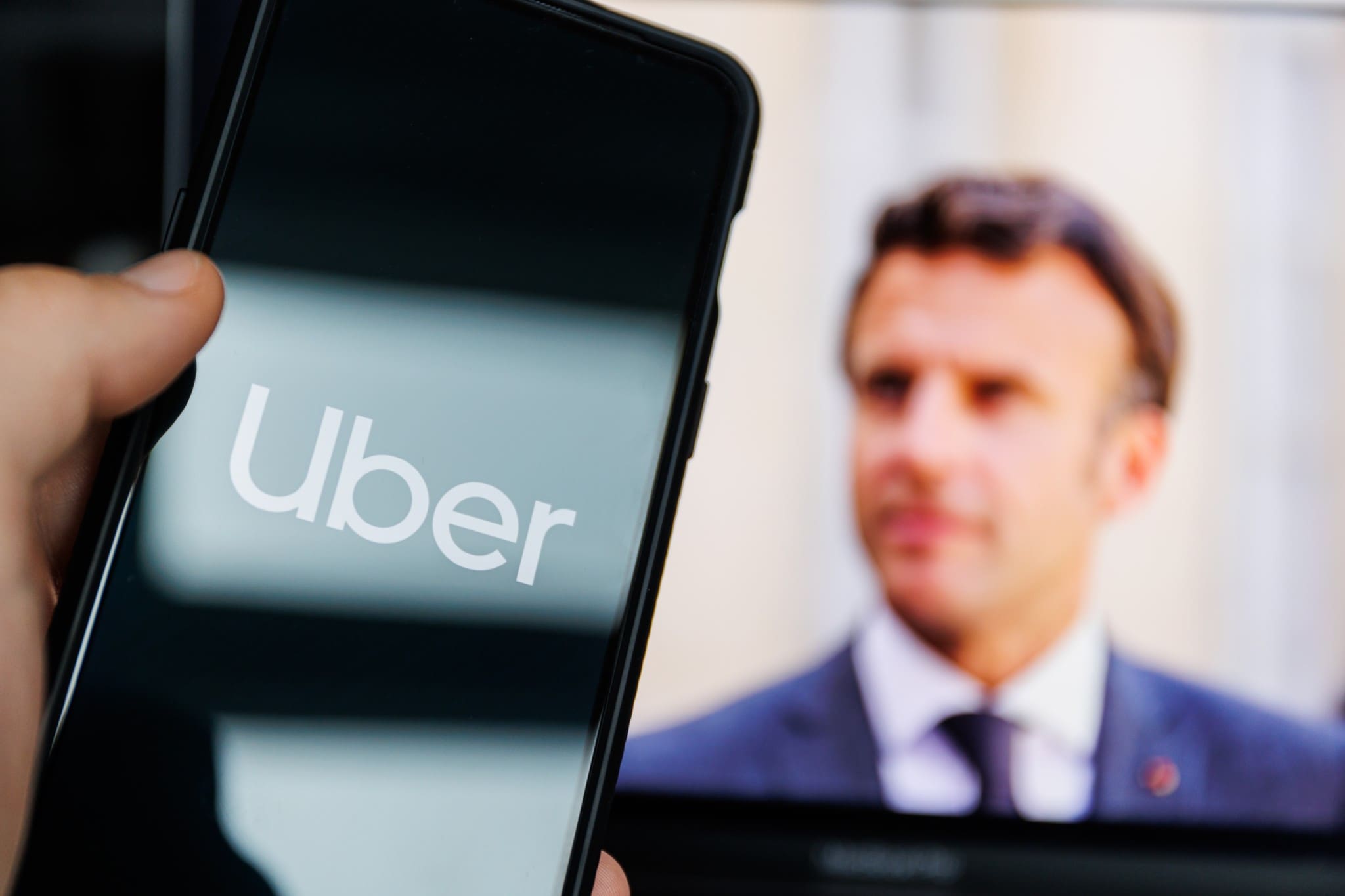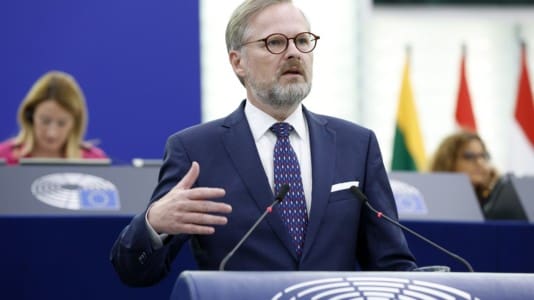Emmanuel Macron was defeated Tuesday night in the National Assembly regarding his plan to extend the ability of his government to arbitrarily impose a health pass to enter France after the end of the current state of health emergency on July 31. He has also been widely attacked in the media over his role as lobbyist for the U.S. company Uber while he was socialist President François Hollande’s economy minister.
On July 10, several media outlets, working together in the Consortium of Investigative Journalists, published the results of their investigation into leaked papers showing how Emmanuel Macron worked in 2015 to help Uber break the monopoly of French cabs against the will of the socialist government headed by Prime Minister Manuel Valls and in particular of Interior Minister Bernard Cazeneuve, who was faced with a taxi protest movement. Macron’s action also went against court rulings regarding Uber’s violations of competition and labor laws.
The development of Uber on the French market with Emmanuel Macron’s help caused taxi drivers to lose at least half the value of their licenses, which they had bought at a high price (sometimes several hundred thousand euros) but which allowed them to charge higher rates due to the scarcity of licenses and thereby of cabs; they also treated the licenses as their retirement capital since such licenses can be resold when leaving the job.
[pp id=41901]
Pressed by reporters’ questions, Macron has said this week he is proud to have helped the U.S. company and that if he had to do it again, he would do it “tomorrow and the day after.”
The “Uber files” are a collection of 124,000 company documents that were shown to The Guardian and shared with the International Consortium of Investigative Journalists. In France, the newspaper Le Monde and the public radio station Radio France belong to this consortium and were the first to publish these revelations, which were then picked up by numerous media outlets.
This attitude contrasts with how the same media had passed over in silence the numerous meals paid for by taxpayers that Macron — while serving as minister — had offered to various personalities, and in particular business executives, in preparation for his campaign for the 2017 presidential election. Macron has never been challenged for having spent public money for his own political purposes, while his main rival François Fillon, the center-right candidate who was heading the polls at the time, had his campaign derailed, including through the use of illegal leaks to the press, by the financial prosecutor’s office being in the hands of the socialists for deeds that were probably less serious: the largely fictitious nature of the job of parliamentary assistant that Fillon had given to his wife, which was also paid for with taxpayers’ money.
Even worse, the French mainstream media, which is mostly in the hands of a small number of big oligarchs, many of whom then Economy Minister Macron had been courting, all passed Macron off as a newcomer to French politics, independent of the party system, through massive propaganda during the 2017 presidential campaign in order to help him win the election.
Similarly, the French mainstream media have remained overwhelmingly silent on Emmanuel Macron’s role, first as deputy secretary-general to President François Hollande and then as minister of the economy, in the sale of Alstom’s energy business to America’s General Electrics in 2014-2015. Alstom is the manufacturer of the TGV, the high-speed trains the French are so proud of, and its energy branch, sold to the Americans with the support of Macron, was an important player in the French civil and military nuclear sector.
[pp id=38030]
Thus, since 2014, the maintenance and renewal of the turbo-alternators in the 19 French nuclear power plants (with 58 reactors in total), the production of Arabelle turbines for the EPR reactors, and the supply of propulsion turbines for the four nuclear-powered ballistic missile submarines and the Charles-de-Gaulle nuclear-powered aircraft carrier, have been in American hands.
Alstom’s executives, for their part, received millions of euros in bonuses for the transaction.
In the case of Uber, it is leaked internal company documents dating back to the years 2014-2016 that have revealed the young Economy Minister Macron’s extraordinary commitment to the U.S. company, at a time when it continued to operate its UberPop service in France despite court rulings that had ordered its closure. Those court decisions were followed by a law passed by parliament that came into effect on Oct. 1, 2014, which de facto banned UberPop after a protest movement by taxi drivers.
Here is what the newspaper Le Monde, which had been in the past very complacent with Macron, wrote about what happened on the day that law took effect:
“At 8:30 a.m. that morning [of Oct. 1, 2014], it was a rather unusual Uber vehicle that parked in front of 145 Rue de Bercy – the entrance to the Ministry of Economy and Finance used by guests visiting Emmanuel Macron, who had been appointed to head the ministry one month earlier.”
Inside the Mercedes Viano van were four Uber heavyweights: Pierre-Dimitri Gore-Coty, the Western Europe director, now in charge of Uber Eats; Mark MacGann, the chief lobbyist for Europe-Africa-Middle East; David Plouffe, the former Barack Obama advisor newly appointed as Uber’s vice president; and the company’s founder and CEO himself, Travis Kalanick.
An hour later, the hardcore lobbying team emerged stunned from Macron’s office.
‘In one word: spectacular. Unheard of. Lots of work ahead, but we’ll be dancing soon ;)’ wrote Mark MacGann in a short debrief sent to his colleagues in the aftermath. ‘Mega top meeting with Emmanuel Macron this morning. France loves us after all,’ he also wrote.
This confidential meeting was not on Emmanuel Macron’s agenda.”
[pp id=37010]
And this is what The Guardian wrote:
“Emmanuel Macron went to extraordinary lengths to support Uber’s lobbying campaign to help it disrupt France’s closed-shop cab industry, even telling the tech company he had brokered a secret ‘deal’ with its opponents in the French cabinet.
Leaked files including text message exchanges between Uber executives and Macron reveal how the cab-hailing business identified him as a key ally when he was economy minister and turned to him to help it behind the scenes.
The files suggest pro-business Macron, who was re-elected French president in April, was close enough to Uber’s managers during his two years in the economy ministry from 2014-16 for them not to think twice about contacting him for possible help when their premises were raided by tax and other authorities.”
The French media is now wondering why this meeting between Macron and Uber executives, and the many that followed, were not on the minister’s agenda, and how it is that Uber executives were exchanging directly with the minister via SMS on his cell phone.
In addition, the president at the time, socialist François Hollande, assures us today that he was not aware of the private negotiations and the secret deal made with the company Uber by his young economy minister.
As for the minister of the interior at the time, Bernard Cazneuve, he refuses to say whether, as Macron claims today, he had been informed of the deal with Uber. He replied to the newspaper Libération by saying that he will only address that topic in front of “an official body, such as a parliamentary inquiry committee, for example.”
And given that Macron no longer has a majority in the French parliament after his party’s defeat in the June elections, the establishment of such a parliamentary inquiry committee, which the opposition parties are already calling for, now seems highly likely.
Will this mark the end of impunity for a politician who first became the president of France in 2017 after elections that were tainted by the crucial role played by a financial prosecutor’s office created and dominated by the ruling socialists? This would certainly not be a bad thing for democracy and the rule of law in France.





